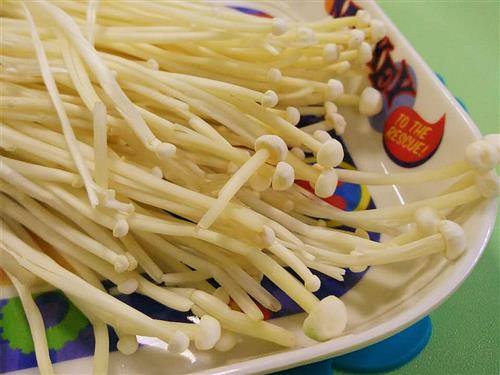Burdock cultivation techniques
Gastrointestinal tract is the digestive system of the human body and is also the core of nutrient absorption. Therefore, the task of maintaining gastrointestinal tract is extremely important. So, how can we get a good stomach? Let's find out together! Spring stomach foods are pumpkin, carrots, spinach, sweet potatoes, peanuts.
In the spring, six tips to help you to please the stomach

1, slow down the speed of eating
A number of studies have found that devoured eating habits can easily lead to accumulation of food in the body, increase the burden on the stomach and reduce the speed of bowel movements. And if you eat too fast, the vitamins, minerals, and amino acids in the food can't be fully absorbed, which will cause a great loss of nutrients. Over time, the stomach will be out of balance. Eating slowly will allow the food to be better digested and absorbed so that it will not become stuck in the intestines.
It is recommended that you eat at least 25 minutes per meal, and it is best for older people to chew more than 20 times a meal. Because the food is chewed in the mouth, it can combine with saliva to produce salivary amylase, which is the main driving force for digestion. It is best to eat with family and friends and slow down, which helps change the habit of eating too fast.
2, supplement "good bacteria" to protect the gastrointestinal tract
There are hundreds of millions of bacteria inhabiting the intestinal tract, such as probiotics and pathogenic bacteria. The role of the former is to balance the bacteria and maintain intestinal health. When the “general strength†of the beneficial bacteria is less than the harmful bacteria, the balance of the intestinal flora is broken, which may lead to various problems such as constipation and diarrhea. Probiotic supplements in daily life can not only enhance the combat effectiveness of beneficial bacteria, but also help maintain intestinal health, promote intestinal motility, and improve the intestinal environment where bacteria are located, and inhibit the growth of harmful bacteria. In fact, in addition to yogurt and cheese, other fermented foods also contain probiotics such as kimchi, natto, fermented bean curd and so on. In addition, in order to stimulate the growth of probiotics, we must eat more foods rich in oligosaccharides, such as bananas, garlic, honey, onions and asparagus, etc., because oligosaccharides are nutrients in the intestinal probiotics.
3, eat fiber intestine
The study found that daily intake of 20-25 grams of dietary fiber can make the intestine more "green." A high-fiber diet reduces the risk of esophageal and gastric cancers.
1) Vegetables and fruits contain more "water-soluble fiber" that can clean the intestine and adjust the environment of the intestinal flora. It not only prevents cancer but also relieves constipation, which is beneficial to gastrointestinal health.
2) Grains contain more "non-water-soluble fiber", which can stimulate intestinal peristalsis, shorten the time for food to stay in the large intestine, and reduce the absorption of harmful substances.
Therefore, diet and nutrition should be balanced, do not eat a lot of a single food, and each food should be ingested. Whole grains, spinach, broccoli, apples, broccoli, pears, beans, etc. should all be regular customers on the table.
3, stomach like four types of food
1) Eat foods that purify the intestines, such as minced meat, cinnamon, etc., can enhance gastrointestinal motility and help digestion;
2) Ginger can relieve nausea and nausea during pregnancy and after surgery;
3) Mint leaves can relax stomach muscles and relieve digestive disorders;
4) Oatmeal is a “moderating agent†that protects the stomach wall.
5, take a break after a meal
The study found that taking a short break after a meal can enhance gastrointestinal resistance, especially at noon, to try to take a nap, to avoid further reduction in gastrointestinal blood flow. However, it is necessary to rest after dinner for a period of time, because most of the organs enter the state of “recuperation†with a slow metabolism during the nighttime sleep. At this time, the gastrointestinal tract is “stressedâ€. Not only does the gastric mucosa not be repaired, but it also promotes The stomach secretes gastric juice and digests food, destroys the gastric mucosa, and causes stomach erosion, gastric ulcer, and other diseases.
Therefore, sleeping shortly after dinner, food stay in the stomach, is tantamount to "sleep to wait for the disease."
6, every meal seven or eight full
The hungry meal is full, and the food that you don't like is rather hungry, but when you see something you love to eat, you can eat it. Over time, the stomach will have to "strike." Experts said that even if it is something you love to eat, don’t “eat it all at once.†Each meal is best eaten with only seven or eight full meals, and no more meals should be added. To allow the stomach to be fully rested, otherwise it is easy to indigestion.
In addition, there are some habits that require attention before and after meals:
1) For example, try not to eat cold food before meals;
2) Drink a few mouthfuls of soup or water before meals to promote the secretion of digestive juice, but not too much;
3) Do not exercise vigorously before or after meals for an hour or two;
4) Eat less food that is too oily, salty, and too spicy so as not to irritate the stomach.
Chilli pepper
Chilli pepper
Laiwu Manhing Vegetables Fruits Corporation , https://www.manhingfood.com